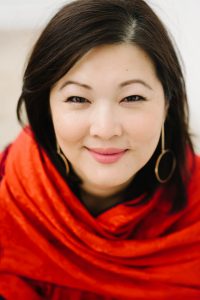
NICK DANLAG – STAFF WRITER
Mei Fong’s writing is far-reaching and deeply personal. Her book, One Child: The Story of China’s Most Radical Experiment, covers how the one-child policy still impacts economic growth and families in China, with one-fourth of the population over 65 and the younger generation being predominantly male. In this chronicle of the practice that started in the 1980s, Fong weaves in her own story of striving to have a child.
Fong’s writing has been featured in The New York Times, The Wall Street Journal and many other newspapers. As well as winning the 2006 Human Rights Press Award from Amnesty International and the Hong Kong Correspondents Club, Fong is now the Chief Communications Officer at Human Rights Watch.
At 10:30 a.m. Tuesday, June 29 at the Amphitheater, Fong will discuss the worldwide impact of China’s one-child policy as part of the Chautauqua Lecture Series theme “China and the World: Collaboration, Competition, Confrontation?”
“We welcome Mei Fong to the Amp this week to speak to what was, in her words, the world’s most radical experiment,” said Matt Ewalt, vice president and Emily and Richard Smucker chair for education, “and has had devastating cultural and economic consequences.”
In a 2017 editorial for Think, Fong delved into her experience of sending her 6-year-old son to school with leftovers, only for him to come home, ashamed, saying that the other children bullied him for his “stinky” food.
“My first instinct when my son told me his lunchbox story was anger,” Fong wrote. “I wanted to send him back into his classroom armed with pride and an indifference to playground slurs. But I also wanted to shield him. He’s only 6! Why should lunch be a battlefield?”
Fong, a Pulitzer Prize-winning reporter, then journeys with the audience through the far-too-big rabbit hole of “lunchbox shaming,” when children, and adults, are hazed for bringing in their culture’s foods.
In that brief article, she finds American news organizations writing about which foods not to take into the workplace, with one listing Mexican food at the top; depictions of shaming in popular media like “Fresh Off The Boat;” and how some immigrant families protect their children from the shaming they experienced as children.
At 16, Fong met Queen Elizabeth II after winning an essay writing competition.
“Nothing so exciting had ever happened in my dull life until then,” Fong wrote on her website.
Pursuing journalism and writing after meeting with Her Majesty, Fong graduated from the National University of Singapore and earned a master’s degree in international affairs from Columbia University.
She also produced a podcast called “The Heist’’ that documents power in former President Donald Trump’s America and is in Foreign Policy’s Top 50 U.S.-China Influencers in the Media & Culture section.
One of the things that Fong has continued to raise alarm bells about is China’s declining number of career-age adults.
“China needs to desperately increase its number of working adults,” said Fong in an interview with CCTV. “China will be adding about 10 million pensioners every year, but adding about seven million working adults. That’s obviously not great in the long term.”




